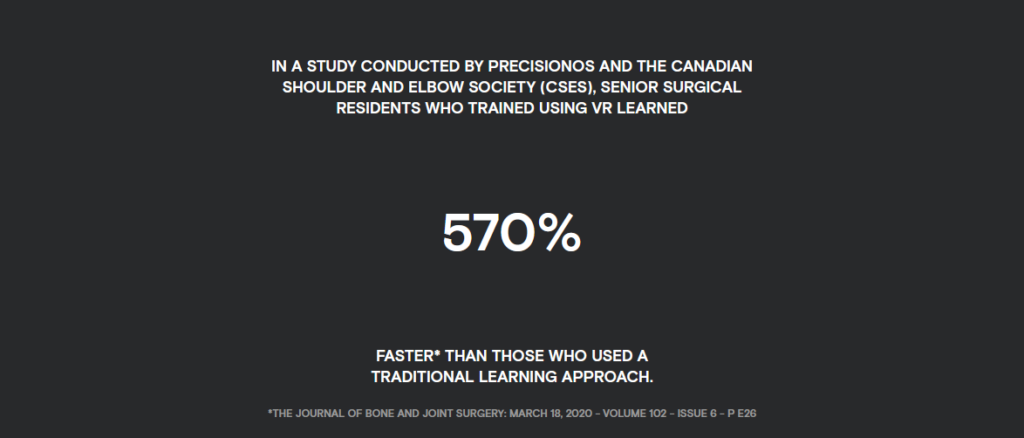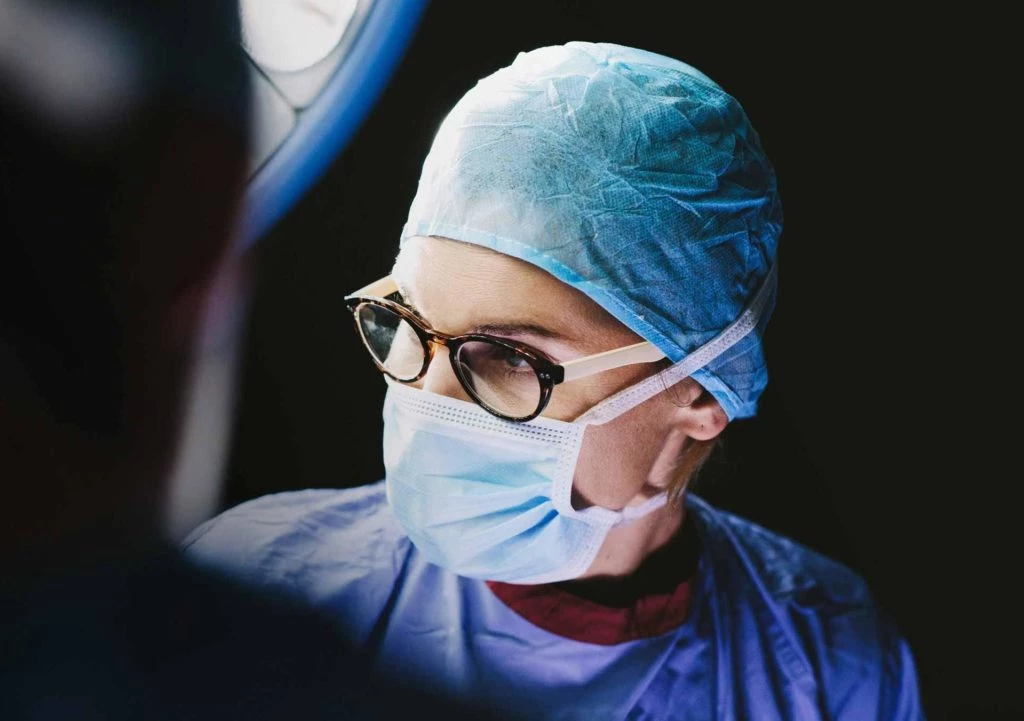Comment UConn Health et PrecisionOS forment les résidents en chirurgie orthopédique à l'aide des casques Oculus Quest.
According to Dr. Augustus Mazzocca, who helps train residents in orthopaedic surgery as the Director of the Musculoskeletal Institute at UConn Health, not every surgeon is a natural. “As in any profession, some people are not as naturally gifted, so we make up for that by doing volume,” he says. “If a resident is struggling, we have them do as many cases with variability and obtain as many repetitions in the area that they are weak until they eventually obtain the skill.”
De multiples facteurs ont conduit au développement de méthodes créatives pour former chirurgicalement les résidents en orthopédie en dehors de la salle d'opération proprement dite. À UConn Health, les résidents mettent en pratique leurs compétences sur des cadavres dans le laboratoire de biocompétences. Mais les procédures de pratique sont coûteuses et longues, et les résidents ne peuvent effectuer certaines procédures sur des cadavres qu'une seule fois.
Utiliser la réalité virtuelle pour permettre une pratique ciblée.
In 2019, the UConn Orthopaedic Department discovered PrecisionOS, a medical software company that offers interactive VR experiences for surgical training in orthopaedics. Founded by Dr. Danny Goel, an orthopaedic surgeon and educator, and Rob Oliveira and Colin O’Connor, two veteran game developers, PrecisionOS offers medical-grade VR training and educational modules that enable surgeons to practice orthopaedic procedures in a safe environment and at a relatively low cost using Oculus Quest headsets.
Dr. Goel says his team wants to make teaching and learning with VR as valuable and real-world as possible in a safe, low-risk environment. “We’re pushing the boundaries of simulation during the operative experience in virtual reality,” he says. “The Oculus Quest headset was a game-changer for us. It’s mobile and offers high-quality haptics, six degrees of freedom, and high-fidelity visuals. This allows doctors to get in and get started fast.”

Dr. Mazzocca was skeptical of VR until the moment he put on an Oculus Quest headset. “It’s insane how quickly your body adjusts — I couldn’t believe it,” he says. “Easily within a minute, you become part of that environment. And the quality of work in the PrecisionOS system is incredibly similar to the real world.”
For UConn Health, VR with PrecisionOS and Oculus Quest headsets represents a breakthrough because it allows residents to engage in purposeful practice — identifying the skills they need to work on and practicing those skills repeatedly. It also delivers a double-loop learning system that lets residents make mistakes and gives them feedback to incorporate on their next try.
“The magic part for us is that we can go over an entire case multiple times,” Mazzocca says. “I can connect via computer and see what the residents are seeing — I become their eyes. I can see how quickly they’re looking at things, what they’re looking at, and how they’re reacting to various situations.”
When residents are putting a pin in a bone in VR, they can hone their 3D spatial awareness as they learn how to reduce the fracture, position the X-ray to get the appropriate view, and place the pin in the perfect position. “These are all critical skills they have to learn, perfect, and master so they can proceed with cases in a much more efficient and reproducible way,” Mazzocca says.
Faire avancer la formation médicale pendant l'épidémie de COVID-19.
Quelques mois après le début de 2020, UConn Health a suspendu les chirurgies électives en raison de COVID-19. Bien que cela ait encore réduit les opportunités de formation réelles pour les résidents, l'équipe est reconnaissante que les résidents aient pu maintenir leurs compétences et continuer à pratiquer grâce à la réalité virtuelle.
Regarder vers l'avenir.
Dr. Mazzocca believes VR will have a far-reaching impact on patient outcomes in the field of orthopaedics. “It makes unbelievable sense that surgeons will soon be able to load CT scans into VR and see where a deformity is in a damaged or diseased joint, see how to reduce a fracture, and find out where problems are going to arise before a case even happens.” He also believes that VR will help improve surgical training in areas of the world that don’t allow the use of cadavers in education.
“Globally,” he says, “we haven’t even scratched the surface of what this technology can do.”
TÉLÉCHARGER L'ÉTUDE DE CAS COMPLÈTE
À propos de PrecisionOS
PrecisionOS was founded by a team of clinical orthopedic surgeons and game developers to create the most relevant and applicable medical-grade-VR-simulation experience. Based in Vancouver, British Columbia, the company’s mission is to provide first-in-class orthopedic surgical training on a global scale. Given its focus on surgical education, PrecisionOS is a CME provider through the Royal College of Physicians and Surgeons of Canada and a scientifically validated, peer-reviewed and published immersive virtual reality product on the market. It has been tested among its end users and customers resulting in business relationships with some of the top orthopedic companies, leading institutions and societies in the industry.


